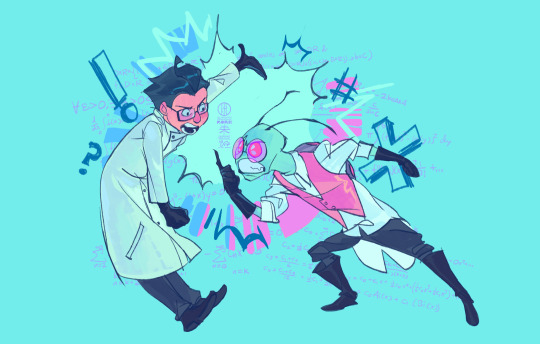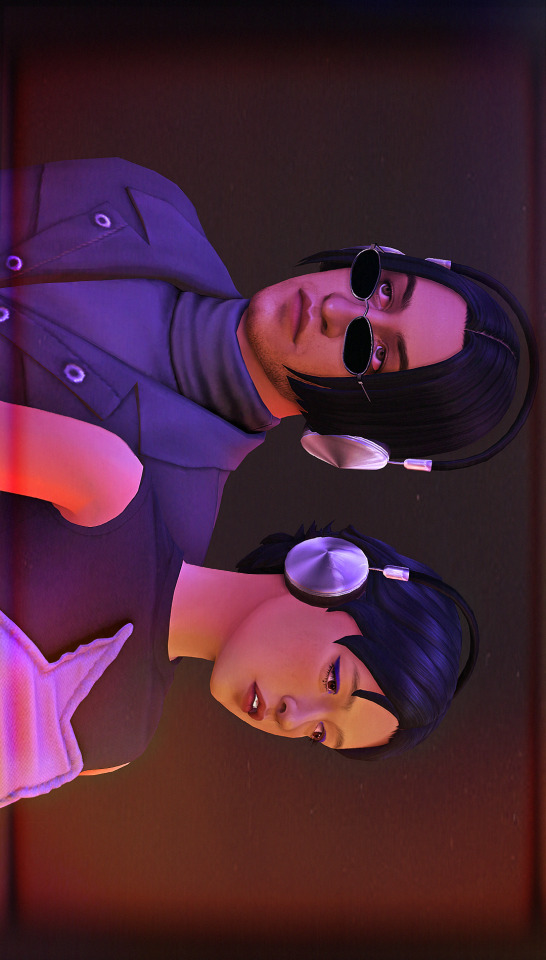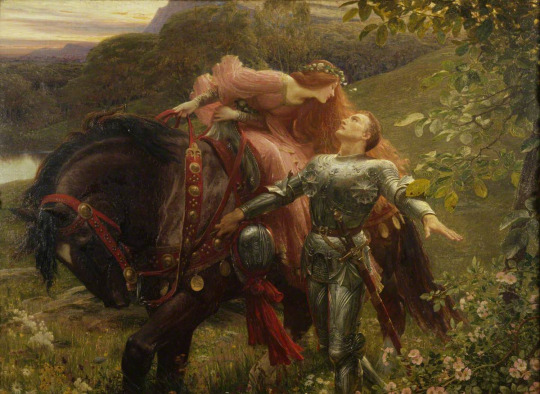#genre: building
Text

224 notes
·
View notes
Text
Decked Out really is a whole other game. It's running on Minecraft textures and programming, of course, but its visual identity is so distinct (Tango's block palettes go SO HARD) and the structure of the game is so brilliantly designed that it just. It's true. It's a whole other game.
#passenger status#decked out 2#it's like the inverse of the relationship between chess and checkers#way different rules and game genre but same building blocks
1K notes
·
View notes
Note
What kind of music they like? Which one of them wears headphones all the time? Which one of them should be use headphones?



gideon: roxanne, heat of the moment, fortunate son, black hole sun, joan jett etc. she does listen to danger days but she will not say she likes mcr because people start making assumptions about her. she mainly likes that album and occasionally listens to save yourself, ill hold them back a concerning amount of times in a row
pal: classical when hes studying, ska for the hype
cam: house music, brass/horns heavy stuff. also likes ska and guitar-heavy songs
dulcinea: 2000s party music, R&B and jazz
harrow: cathedral nuns singing (9 hours), muttering radio channel (20 hours)
PSA: please do not send asks asking characters their opinions on singular songs/song genres/tv shows/movies. they are too specific to spend time listening, thinking, and drawing an answer to and they will be ignored
#credits to thatneoncrisis who helped me build up gideons music taste bc i have a more niche music genre (the ska)#you can send the music asks to them or to me (notedchampagne) on main if you want#dulcinea septimus#palamedes sextus#camilla hect#gideon nav#harrowhark nonagesimus#the locked tomb#gideon the ninth#artlog#music#basic info
702 notes
·
View notes
Text
actually i love it when the characters are all lying. i love it when they all have secrets and none of them trust each other. i love being given clues that solve puzzles i haven't even been presented with yet. i also love it when i get chills watching a scene without even knowing what it means, and when i do know what it means, i get even more chills. i love theorizing and thinking and solving and coming up with possibilities of where a story might be going. i love it and i will do it for free, for fun, for no real reason.
this is a mystery appreciation post!! if you appreciate mysteries and secrets and stories that slowly unravel before you, please interact!!!
#mystery >>>> true crime#mystery >>>> horror#i just really love me some mystery and thought that my love of mystery should be a tumblr post#gonna tag some shows and books that i love#1899#(i just started watching it today w/ my parent. already filling all of my 'good mystery show' requirements)#only murders in the building#all the wrong questions#a series of unfortunate events#yes. snicketverse is valid mystery fiction. get over it. snicketverse fucks.#the nevers#maaan....i miss the nevers. im so sad that it got cancelled it was some gooood shit.#agatha christie#aka the absolute queen of murder mystery. she IS the genre.#hercule poirot#i grew up on hercule poirot. i still love hercule poirot.#books#literature#mystery#murder mystery#appreciation post#genre fiction#fiction#writing#fritz rambles too much
6K notes
·
View notes
Text
I love how ominous such basic names like "The Organization" or "The Institute" or "The Initiative" or "The Facility" or etc. are when placed in like a shady sci-fi context, like there's no reason for them to sound that suspicious, but without elaboration, it's like here is a place where they are doing things™ and I am like ooohh, because the blank state, the refusal to give you any more detail makes you think they're hiding something on purpose and leaves the darkest corner of the imagination left to fill in the rest.
#writing#writeblr#names#i want to give my shady research facilities in my stories actual names but some part of me is like#you'll never get the level of unease you get from just naming it the institute rather than the x institute or something#sci-fi#other genres i guess too but usually sci-fi#the barn in haven why is that the scariest sounding thing ever like?#you just know that thing ain't a barn#it is a barn physically outside but oh the creep factor that name gives i can't explain#the shop in firestarter? like f*ck it conjures up images of a workshop and saws building and tearing apart people for some reason#the initiative in buffy it's so nondescript and unassuming just like its soldiers living among the campus and the military power they hold#etc etc etc you know#mayhaps i am not creative enough to come up with better names also mayhaps
2K notes
·
View notes
Photo

they are having an argument over whether P=NP
#invader zim#quirinahdraws#that one zim with the glasses and concept dib are the same genre to me#theyre from the nerdiest universe possible. zim builds a death ray and walks through the entire mathematical schematics behind it#dib membrane#zimvoid#concept dib#doodle#digital#procrasti-doodling again 😔✋#fun fact! the math in the back is all stuff i yanked from assorted notes lmfao. it’s like mostly basic calc#there’s the fundamental theorem somewhere in there…and the power series solution to a differential equation LOLOLOL#hi watch this. goes 🤓 mode
410 notes
·
View notes
Text
Feeling conflicted about the cyberpunk thingy impulse is going for because like yeah it’s a great theme and I like the aesthetics a lot but what I really like most about cyberpunk is the themes of corporate alienation and/or transhumanism etc etc which I know will not be addressed at all and in fact it’s kind of stupid of me to expect that at all from a minecraft series. Does anyone else get that or just me
#this is an issue I’ve been having with mcyt content in general you know. not ragging on impulse specifically#it’s just… I find it difficult to reconcile the quality of narrative focused mcyt content with its complete lack of commentary#should it have commentary? I believe it could if it wanted to. I don’t think it has to#but then you see these genres being… skinned and worn as cloaks#taking the aesthetics and story without any of the meaning behind it#and when it was just Minecraft builds that was expected. I guess it is still expected and I’m being a huge snob#but like. mcyt narrative is so fucked from a quality standpoint. you can’t even have villains who are other mcyters because people#will get mad at them#is that an unrelated issue? maybe. but I don’t think so#idk. mcyters aren’t expected to be storytellers and they don’t need to be#but I see these things happen over and over again and it’s just uncanny to see something that walks like a story talks like a story#but at the same time has absolutely nothing of value to say#it’s very early on so maybe there will be something done with this concept but I doubbbt it. I would be very pleasantly surprised#astro speaks#hermitcraft#not putting this in the impulse tag cause he would be more likely to see it#and I don’t want him to feel like he has to address this at all#it’s more just me noticing a trend
77 notes
·
View notes
Text


Demon at the Temple
#dol#degrees of lewdity#artists on tumblr#dol comics#dol fanart#dol sydney#sydney the fallen#dol pc#mallory the rapier#eyyyy it’s sudden shift in genre time#basically in mallory’s story sydney had met him once before in a dream#in the dream he was in his demonic harpy transformation and he was holding The Spear#and burning a building I guess#I know I know romantic am I right#so when sydney met mallory for the first time (as human) sydney had been scared#but then they became friends#and then as they became lovers and sydney became corrupt#mallory went to the island to get the spear#and came back turned into a demon#but ya know sydney isn’t scared this time because he knew mallory now#the dream was still a psychological horror though#(all of this plotting is only because it took me a long time to get sydney to love my pc in-game LMAO)
77 notes
·
View notes
Photo

post modern sleaze
#musical duo whomst I can't pin down the genres of#a mix of everything but the girl + sneaker pimps + life without buildings + saint etienne#ts4#ts4 edit
332 notes
·
View notes
Text
here's a hot take for today
the narrative function of sex is the same as the narrative function of fight scenes is the same as the narrative function of songs in a musical
no i will not explain
#taz talks#writing#actually i WILL explain but i'll do it in the tags#these each serve the same function within their respective appropriate genres#each one is a kind of revelation#they heighten the connection between 2+ characters and highlight relationships and feelings and needs#they are out of place in genres where they do not belong and/or as curveballs when the narrative did not provoke them from the start#but they have the same sort of emotional/dramatic build-up#talk -> sing -> dance (talk -> yell -> stab) ((talk -> flirt -> You Know))#and they are all expressions of intense physicality and intimacy through physical gesture and interaction#they are fundamentally empty and boring if there is not a deeper purpose or drive behind them#although they can still occasionally be entertaining on their own if your audience is specifically seeking that experience out#people who do not like them will be very unhappy to encounter one where it isn't supposed to be#it is very easy to ruin the mood with poor word choice#many people have an inherent sense for terrible ones but it's often difficult or complicated to explain precisely why a bad one fails#when executed properly they are a very raw and intimate expression of a character's most fundamental needs and desires#the fluff is stripped away and there is nothing left but a series of needs. conflicting or cooperating.#and even when you're lying during one it's still a form of truth#none of these things are remotely necessary to tell a powerful or compelling story but if you're going to use them you need to do it right#also all 3 of these things are difficult if not impossible to write if you are not both interested in them and personally invested#this post brought to you by me trying to write smut about my dnd characters and failing because i generally hate /reading/ smut#so i have none of the vocabulary or instinct for it that i do for. say. graphic violence (or lyrical poetry)
191 notes
·
View notes
Text
it's so funny how Stray is such an organic and alive game and most of its characters are robots! they are unique and so humanized each with their own style, taste, mannerisms. the magnificent setting of the game only helps to enrich this universe. the way the city is alive, full of colors, I want to know more about their lives and what it will be like from now on. an optimistic vision of a dystopia where robots don't hate humans as we're used to seeing them, but decided to emulate and cling to the good parts of that old society and then create something new. just a bunch of loose words to conclude that i'm totally blown away by these little robots living their lives at the end of the world.
I think they will be okay.
#stray#stray game#I found myself rooting for each of them in their little battles#I just think this game is a lesson in setting and world building#and a different view of the cyberpunk genre where the problems are there but also a very beautiful world coming out of it#hope still exists#I know it all comes to an end but I wouldn't complain about a DLC. still a lot to tell#anyway I'm going to draw a lot about this game
839 notes
·
View notes
Text

152 notes
·
View notes
Note
“I just don't like Gosho's use of ideas nowadays” do you have some examples? I’ve been feeling the same but I still don’t have like articulate thoughts on it
Well, 'nowadays' has been for. About ten years, ish? The most glaring example that always sticks out in my mind is the Sun Halo MK chapters, with the complete and utter waste of the very common fanfic tropes of 'Aoko gets suspicions' and 'Kid gets injured around someone'. But it kind of matches the general problem I have with his writing that I don't think used to be this bad: He's trying to stuff too much around the strict case-by-case structure (or for MK, introducing the heist-by-heist structure) without actually giving anything focus. (And for MK it's so much worse because he writes it so rarely, that he makes everyone cameo every time but they tend to just get hand waves to whatever drama plot gets instigated by Kid having his next heist.)
For DC, it's the whole. 1) Overarching plot with the BO and suspects and 'here's the available suspects for who's involved with the BO that we introduce one at a time at the end of cases and then maybe leave more clues about them during future cases'. 2) Dangling character or relationship progress and then constantly pulling it away, usually as a joke. 3) When we do occasionally get some of the major plot, it's all at once and then maybe mentioned once in the next case, but otherwise completely dropped. (Amuro and Akai and Kudo tea party tease also lingers as a 'Gosho is just evil at this point'.)
Basically rigid structure that doesn't allow for much of the subplots aside from breadcrumbs.
For the current situation, it's also tied into interview comments. Which. have no bearing on the story until he actually uses them. But instead of even that, the movie gets exciting stuff instead and puts it in a giant limbo of is it meant to be canon or not, because no one has been able to settle on that for any movie, even as some details get connected back to the manga more and more.
It's bad writing. Gosho has been a bad writer for a long time, and it's kinda just getting worse. It's my opinion that it's because he tries to have his case after case after case (because mystery manga), and then stuff little bits of everything else in the seams, whether it works well with the case he's writing or if it's a good delivery or (more usually) it's just. Kinda tacked on.
It's partially because of time investment, partially because I have low standards of entertainment, and partially because I want to see how it all ends that I stick with DC. MK is. Similar, but hurts more because I really hate how it morphed into the DC structure when old MK had more you could do with it. Gosho will never drop his rigid case-by-case structure at this point, but it really would be better if he did at this point. Things need development that they're not allowed to have. Or at least smooth out the lines between his hints. And stop with Heiji and Kazuha, just. God. Stop. Is this how people felt about Kid appearances? I feel like at least when people were mad about Kid, they knew nothing was going to happen from the get go, the romance 'tease' is just painful.
#dc thoughts#It's really just a general feeling that I know Gosho /can't/ write drama that well#The writing style he's picked really doesn't allow him to; whether he /could/ write it well or not#So I don't like him going for an idea that sounds like a fanfic idea#Because it's never going to be as fun to watch as just. A fanfic. Because fanfic writers don't have to stick to genre or anything#/They/ can take time to explore character dynamics and implications and direct continuation of the idea into multiple chapters#Gosho literally /can't/ do it. At best; it's okay. At worst; it makes all the characters look so much worse#Because the characters are smart or dumb to allow whatever situation Gosho wants to happen /right then/#Because he can't wait too long to properly build up fun little ideas; he just smashes them in and moves on#(The Fairy Lip heist is also lingering. Most of what sticks in mind is Kid; as per usual)
25 notes
·
View notes
Text
That C.S. Lewis quote about being "old enough for fairy tales again" is really popular in this section of tumblr, but I think I've hit an opposite stage where I'm old enough for realism again. As a teenager in English class, realism seemed like the boring, baseline option that limited your imagination to only the dullest parts of daily life. If I wanted real life, I'd just live it! Stories should give us something bigger and brighter and more exciting!
But as I get older, I'm starting to understand that realism isn't about limiting yourself to the real world, it's about appreciating it. It's about noticing and caring about those tiny details in life. It's about looking at the seemingly ordinary and unexciting people and saying that their stories are worth telling, too. There's a beauty in gazing upon this world in delicate detail and drawing out those fine shades of nuance that you don't notice in the bustle of actually living life. Realism lets you slow down and recognize that our world has wonders, too, and they don't all have to be big and flashy to be worth our attention.
Younger me also got the impression that realism was depressing--we don't get happy endings because they're not realistic. And it's true that realism has a greater share of sad endings, but that can be a comfort. As you grow up, you have more and more experiences tell you that the happiness of life is buried in a lot of murkier emotions--a lot of turmoil and uncertainty and bad decisions--and realism says that's okay. The story's worth telling even if it doesn't end well, even if people don't rise above their baser natures, even if things are a bit dull. Realism can be happier, in some ways, than those bigger, brighter genre stories, because it acknowledges those murkier imperfections of life and says that they don't erase happiness or make someone's story not worth telling.
Lewis' quote is great, but it's not the whole story. Like Chesterton says, children are fascinated by fairy tales, but the youngest children are fascinated by reality--"A child of seven is excited to hear that Tommy opened a door and found a dragon, while a child of three is excited to hear that Tommy opened a door." Fantasy is a fantastic escape, but like all travel, the point of it is to make us see our own world more clearly when we return home. And that's where realism comes in. Those types of stories aren't about casting off childish fancy and focusing on the grim details of adulthood--they can be about regaining an even more innocent and child-like wonder.
#books#i've been building this thought ever since i started really getting into gaskell#she's the one who opened my eyes to the beautiful compassion of realism#like any genre the book is shaped by the author's lens#there can be very ugly realism but she showed me that it doesn't have to be#reading henry james helped solidify these thoughts#and i think i'm firmly in my realism phase now#i've got a couple of trollope books to try over lent#and i'm very excited about it#when i would not have been only a few years ago#i've matured to the place where i can enjoy long boring detailed stories and i'm very excited about this development
393 notes
·
View notes
Note
In A Guildsman Goes Forth to War, what can you tell us about fae society? I'm assuming they're monarchies, feudal or absolute? Do they bear any resemblance to Celtic society? Do they practice slavery? What of their gender dynamics? Etc
Great question!

So there's a lot that I'm not going to share with you, because the fae/Fair Folk/etc. are supposed to be a mysterious people who live in their own realm that connects to the human world via thin places in the forests and underhill and deep in the mountains or underground rivers, and humanity doesn't particularly understand them very well despite centuries of intermarriage, as the fae are both very cryptic and contradictory in the information they've shared with their Gentry kin.
Government
As far as humans have been able to glean, the Fae do organize themselves into Courts that seem close enough to European feudal systems that the leading families of Europe can do business with them when it comes to dynastic marriage alliances and diplomatic relations.
That being said, status and power in Faerie society don't seem to be based in land as they are among humans. (In the interests of full disclosure, I'm borrowing some ideas here from the Feywild in D&D.) As far as people have been able to glean from correspondence and diplomatic and cultural interactions, titles are based on elements of nature (the Duke of Hoarfrost, the Viscount of Watermeadows) or from emotions (the Lady of Wistful Rememberance, the Prince of Sorrow), or from ideas and beliefs (the Duchess of the Dark Side of the Moon claims to have once been a handmaiden to the goddess Selene).
Quite a few scholars of geography and history from the leading universities have theories and taxonomies about how Faerie society is organized, but they're all second-hand and can offer only partial explanations and there's absolutely no consensus about what's going on. It does not help that the rare diplomatic missions or marriage parties that go to Faerie from the human world rather than in the other direction tend to report memory issues, such that much of what is recorded owes more to dream logic than accurate observation. Needless to say, this has been a rich vein of material for poets, playwrights, and painters only, and intensely frustrating for academics and statesmen.
Culture
Faerie culture is highly localized in accordance with regional folklore and mythology, although scholars disagree whether human folklore is a record of pre-historical encounters with Faerie, or whether the Fae pattern themselves after the human cultures they interact with.
So for example, the Fae of Éire, Alba, Anglia, and northern Gallia seem to correspond to Gaelic and Brythonic literature, Arthuriana, and the Matters of Britain and France. In the Sacrum Imperium and the Danelaw, however, the dominant Fae cultures are distinctively Germanic and Scandinavian - whether that's the Rheintöchter of the Rhineland and Palatinate, or the dvergr who predominate in Bavaria and the Hapsburg lands or the trollkind and various álfar in the land of the Northmen. In much of southern Europe around the Mediterranean, one is much more likely to encounter Faerie peoples recognizable to students of Greek and Roman mythology: many Gentry from the Lega or the western half of the Rhōmaîoi-Rashidun Federation claim descent from oreads, naiads, nereids, satyrs and other bloodlines.
Human scholars are particularly confused by the fact that all of these different peoples all call one another "cousin," no matter whether they belong to the more humanoid elfkind or the distinctly non-human trollfolk or even the potentially fictional or extinct dragons.
Class and Slavery
As already suggested, Faerie society seems to have some sort of a hierarchy, but it does not seem to be one based in the inheritance of land passed down from generation to generation. Rather, as far as humans can tell, status seems to be associated with proximity to or control of or possession of or identification with magical power from various sources.
What does seem to be the case is that those with more power can command those with less, and Faerie embassies ubiquitously feature both vips with titles and what appear to their servants, but there is no consistency on which kinds of fae serve and which rule. Human visitors and diplomats are very unsure whether this consistutes a caste system or clientilism, because the Fae themselves speak in rather vague terms about "obligations" and "debts" and "true names."
Gender
Again, humans have a rather hard time understanding Faerie gender norms - and are rather unsure whether various Fae kinds have genders and how many they have. What is known is that, among what passes for royalty and nobility in Faerieland, there is a tendency for the female to be announced first - correspondence often arrives in the form of "Queen Titania and King Oberon" or "The Baroness and Baron"- which suggests a slight tendency to the matriarchal, but that is mere supposition. Human cultural conservatives both within and without the Church do grumble about the "immodest" and "amazonian" habits of Faerie women when they comport themselves in their visits to human society or in their Gentry marriages, but they make sure to do so under their breath.
25 notes
·
View notes
Text
I wish I liked Wish :/
#I watched Tangled after and realized all the ways I prefer it over Wish#Wish was just soooo fast paced I felt like I was watching a movie on 1.25x speed. no time for anything to breath.#like Maximus in Tangled was Joke-After-Joke-After-Joke#*BUT* then rapunzel and flynn had slow character-building discussions to balance the horse that didn't need jokes inserted#AND Maximus didn't speak-- so the jokes feel more clever. I laughed out loud at him hiding behind a horse-shaped rock#and idk what it is about Alan Menken's music but he is just unbeatable to me#Wish's music was so ''non-musical theater'' genre that I felt like I was listening to a real music group's/band's album#and I don't mean that in a good way...#and I know it's hard for disney to take chances on new art styles but I still feel like Wish's water-color look could have been stronger#for some reason I felt the movie didn't have good composition??? like the lighting often looked flat#I am also fucking SIICK of the last 4 disney princesses having all the same ''yikes oop srry I'm awkward!!'' personality besides Moana iirc#ENOUGH!!!
24 notes
·
View notes